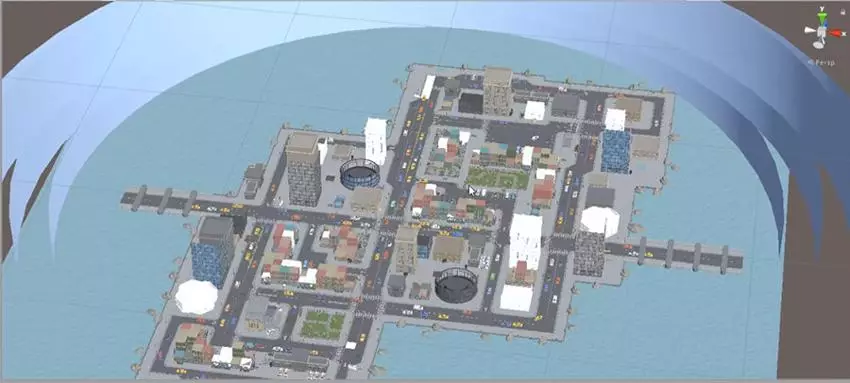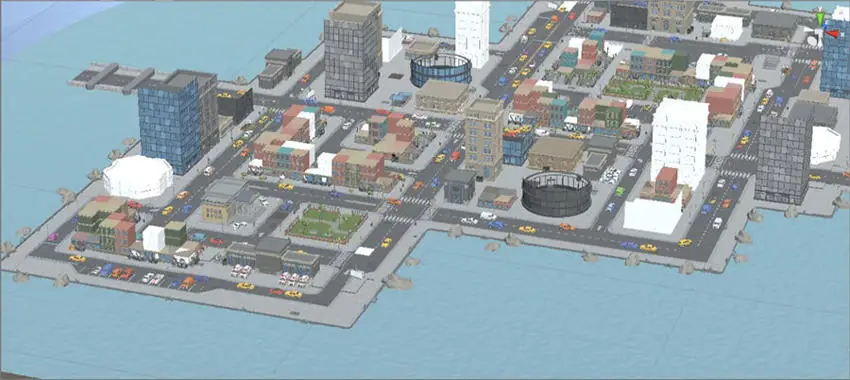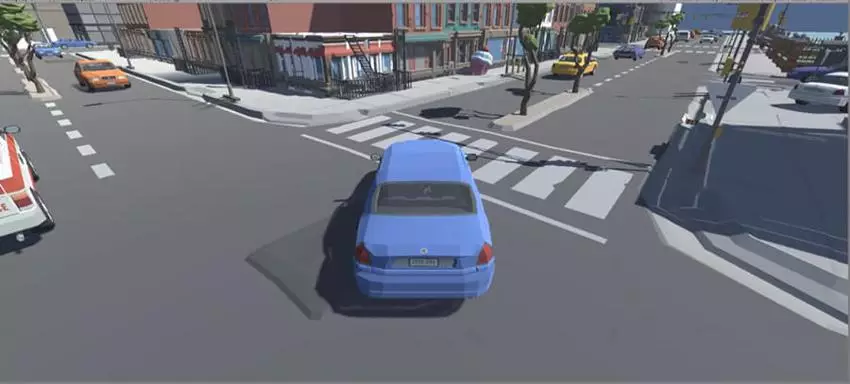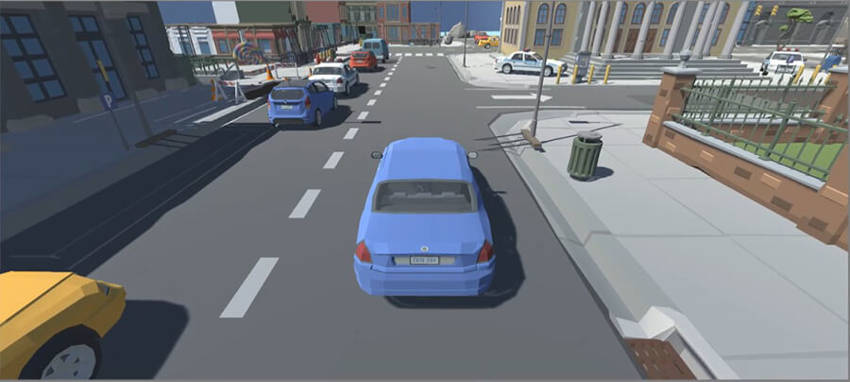The aim of this research topic is to develop a 3D urban multiplayer game environment in which artificial training of autonomous vehicles can be performed to navigate successfully through hazardous urban environment by recognizing, anticipating and avoiding hazardous events from their various radar, lidar, camera, ultrasound and GNSS sensors of their world.
This multiplayer game will be populated by cyclists on trainers cycling through this virtual environment, by driver on car control trainers learning how to drive in this virtual environment and by walkers and runners on treadmills getting fit in this virtual environment. Since current legislation forbids autonomous vehicles on public roads this virtual environment will act as a perfect environment for autonomous vehicles to teach their artificial intelligence systems about the potential hazards that may occur in this environment and develop potential strategies for navigating through this environment, This will require a virtual autonomous vehicle to be developed with all the imaging, lidar and proximity sensors and steering, break, gear and accelerator/brake/clutch pedals actuators to be modelled. So an extensive research is required not only on the modelling techniques for creating this multi-player gaming environment but also on the sensors and actuators for the autonomous vehicle’s local artificial intelligence system to make local decisions and the communications systems required for transmitting the relevant data to a centralized artificial intelligence systems in the cloud to make global decisions. In this research project it is likely that the artificial intelligence systems will be developed in Python because it is gaining a reputation for have very advanced artificial intelligence libraries that can be used to develop the functionality to perform these tasks.
In this research project, it is likely that the main application for developing this multi-player gaming environment will be Unity3D software. Unity is a very powerful 3D engine for making large games and various 3D environment effects.
This project can be used in other ways, such as education and gaming. Driving is dangerous for novices. If you don't practice more, it is easy to have an accident, and this project can meet the training needs of the novice driver. In a virtual scene the car simulator can be used to learn how to drive the virtual car. Continuous practice in virtual environments can be used to improve the proficiency of driving a car which can greatly reduce the occurrence of traffic accidents. For games, the Unity engine can make the scene more realistic and enhance the gaming experience.




Meet the Principal Investigator(s) for the project

Professor John Cosmas - I joined Brunel University in 1999 and soon became the leader of the Multimedia and Networks group. I have a BEng in Electronic Engineering from Liverpool University (1978) and a PhD in Image Processing from Imperial College (1987). Prior to Brunel, I worked as an electronic engineer at Tube Investments (1978-81) and at Fairchild Camera and Instrument Corp. (1981-83), and as a lecturer at Queen Mary College, University of London (1986-99).
Over the years, I have been at the forefront of research in the areas of digital multimedia TV, 2D/3D digital media with 3D virtual and augmented reality, and 3D TV, as well as digital media delivery and transmission networks. My current 5G research adventure focusses on the internet of radio light and the integration of digital media in the radio-light internet of small family homes, multi-occupancy high rise homes, buildings with public access (museum demonstrator) and public places (train station and supermarket demonstrators). Our research approach interweaves the digital design with the architectural interior design of spaces and the electronic design of the light roses.
Future plans include research related to the interactive and tactile internet and the development of digital media for specific interactive, tele-driven applications.
Partnering with confidence
Organisations interested in our research can partner with us with confidence backed by an external and independent benchmark: The Knowledge Exchange Framework. Read more.
Project last modified 21/06/2021